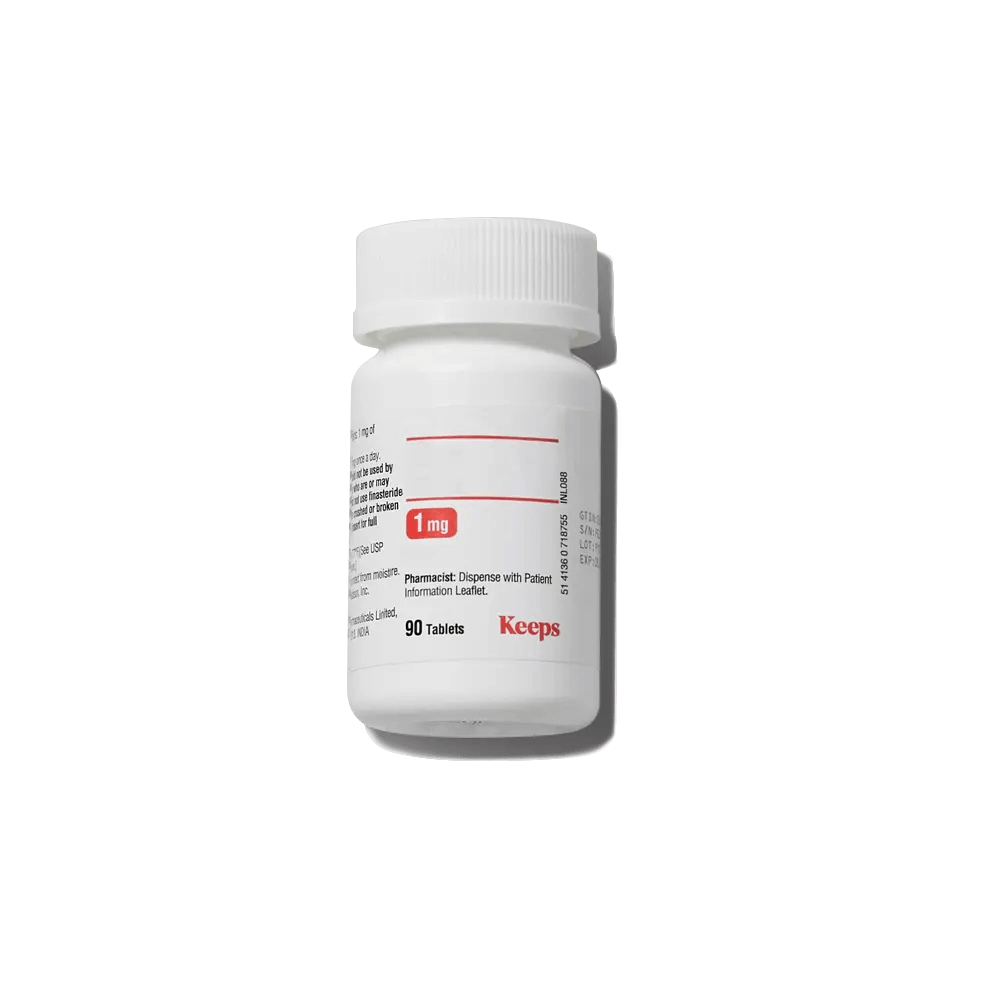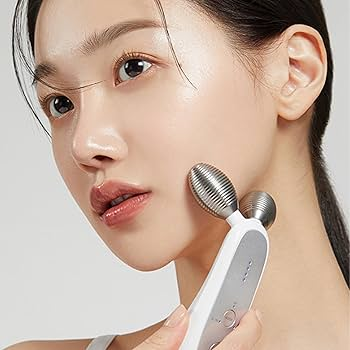Hair Loss: Natural Remedies, Prescriptions, and In-Office Treatments
Good morning, my fellow knowledge seekers. I am Caolan, your friendly guide to the world of skincare, here on my But More Importantly where we discuss interesting dermatological topics every week. August is National Hair Loss Awareness Month, and thus our topic today revolves around understanding and combatting hair loss. Don't forget to subscribe, like this article, and comment on what topics you're interested in learning about next.
Let's address the elephant in the room: hair loss. It can cause tremendous emotional stress, which I can personally attest to, having experienced it during the stressful COVID period. I know all too well the emotional rollercoaster hair loss can put you through. However, it's crucial to understand that hair loss is not a one-size-fits-all problem.
Causes + Types of Hair Loss
Let's delve into specifics. The most prevalent form of hair loss is androgenetic alopecia. Men typically experience hair loss around their temples and at the back of their heads, whereas women face a more diffuse hair loss, predominantly on top of their heads. It involves a gradual thinning and baldness that can be quite distressing to handle. Medical conditions can also lead to hair loss. The first step when dealing with pattern hair loss is to conduct a variety of blood tests, including a thyroid panel, to detect any underlying disorders that might be contributing to the hair loss. The doctor or dermatologist needs to ensure the patient's iron levels are normal and they don't have any underlying medical conditions.
Visible conditions that can affect hair include alopecia areata, which appears as bald patches on the scalp. If the entire scalp is affected, it's known as alopecia totalis, and if hair loss occurs over the whole body, it's referred to as alopecia universalis. Other autoimmune conditions can also affect your hair, as well as infections. Scalp infections can lead to hair loss, and conditions like dandruff and psoriasis can exacerbate hair loss.
Fluctuating hormonal changes throughout your life can lalso ead to hair loss. Events such as giving birth, menopause, or even taking birth control pills can result in hair loss due to hormonal imbalances. Stress and trauma should also be considered as significant factors. Physical or mental stress can lead to a condition known as telogen effluvium, which is characterized by diffuse, dramatic hair loss. Thankfully, this condition is reversible, and once the stressful situation has been resolved, hair will regrow.
Nutritional deficiencies can also lead to hair loss. These include deficiencies in iron, zinc, certain vitamins, and biotin. Though biotin has been heavily marketed for hair growth, it's truly only effective if a biotin deficiency is present. Hair loss is a potential side effect of certain medications such as anticoagulants, beta blockers, and antidepressants.
Certain hairstyles and behaviors can lead to hair loss as well. Hairstyles that involve pulling the hair tightly, such as braids or ponytails, can cause traction alopecia. Frequent use of hot styling tools or chemical treatments can cause hair breakage and thinning over time.
As we age, hair thinning can occur due to the reduced efficiency of hair production. Additionally, treatments like radiation or chemotherapy can cause anagen effluvium, which resolves post-treatment.
Identifying the underlying cause of hair loss is crucial. Androgenetic alopecia, which is often genetically predisposed, is a common cause. If other causes are ruled out, stimulating hair follicles and promoting hair growth is recommended.
Over the Counter Products
Over-the-counter treatments can be effective too. Minoxidil, also known as Rogaine, has been shown to promote hair growth and slow down hair loss. It was originally developed as an oral medication for blood pressure but was found to stimulate hair growth. It's now available as a topical treatment, with strengths ranging from three to five percent. Women experiencing hair loss can use minoxidil, despite some products indicating otherwise. A five percent strength minoxidil is recommended.
It essentially functions by expanding your blood vessels to enhance blood flow, nourishing hair follicles and extending the antigen phase of hair growth. This ensures that your hair remains on your head for a longer period, thus stimulating hair growth. Remember though, discontinuing its use results in hair fall. That's why it's crucial to identify the root cause.
Rogaine usage has been linked to increased facial hair growth in certain populations, an observation I can personally confirm. Apply it strictly on your scalp and ensure thorough hand washing post-application. If you're worried about its effects, perhaps sleeping with a bandana or cap could prove useful.
Secondly, Nizoral Shampoo, also known as Ketoconazole, may prove beneficial if you're experiencing unexplained hair loss. Ketoconazole, an antifungal medication, is available in 2% prescription strength or 1% over the counter strength. It helps by alleviating any scalp inflammation and eliminating any fungus, especially Malassezia, which causes dandruff and potentially contributes to hair loss.
Additionally, it's believed to block dihydrotestosterone, or DHT, a key chemical involved in hair miniaturization, which is a major cause of male and female pattern hair loss. Although the evidence isn't robust, Ketoconazole also lends the appearance of fullness to your hair by increasing the hair diameter.
Natural Remedies for Hair Loss
Recently, Rosemary oil has gained popularity, especially on TikTok. Comparable in efficacy to minoxidil, it must be applied twice daily and consistently for at least six months to see noticeable changes. Besides improving blood circulation and blocking DHT, rosemary oil offers anti-inflammatory and antioxidant properties.
Prescription Medications: A Closer Look
Lastly, there's the prescription-only finasteride, or propicia, which has been traditionally given to men in tablet form. By blocking DHT, it prevents hair miniaturization and normalizes your hair cycle. It's particularly effective on the crown and mid-scalp area. However, women of child-bearing age or those planning on conceiving shouldn't use it due to potential adverse effects on fetal development.
Post-menopausal women or those not planning on having any more children, on the other hand, can safely use it. The biggest concern with finasteride use in both genders is the potential impact on libido and erectile dysfunction in men. I personally favor topical finasteride to oral due to its localized treatment benefits and lesser chances of systemic absorption. However, those planning on conceiving should avoid topical finasteride until they are past that stage of their lives.
Topical finasteride and minoxidil are exceptional at blocking 5 alpha reductase, which produces dihydrotestosterone, a well-known contributor to hair loss. Both men and women aiming to combat hair loss can benefit from using these products, provided they are not planning to conceive. Another recommended medication is Spironolactone, an orally-administered blood pressure drug that also functions as an anti-androgen by blocking testosterone receptors on hair follicles. This is especially beneficial for women with hormonal acne, as well as potential positive effects on hair growth. Despite its potential side effects, such as decreased overall androgen production, it's been deemed effective enough to be manufactured as a cream, known as WINLEVI.
The Power of Supplements
In terms of supplements, Nutrafol, a natural solution promoting hair growth, has been highly recommended. While its efficacy may be questionable due to the potential placebo effect, its benefits are believed to outweigh any doubts. Nutrafol helps regulate hormonal imbalance, inflammation, oxidative stress, and nutritional deficiencies, essentially functioning like a high-powered multivitamin. However, because of its high potency, caution should be exercised when taking additional multivitamins to avoid overdosing on certain vitamins.
For those unwilling to invest in Nutrafol, prenatal vitamins are a cost-effective alternative that provides essential vitamins. Men can also take prenatal vitamins - they are not solely reserved for women or those planning to conceive.
In-Office Treatments: PRP and Microneedling
On the topic of in-office treatments, I've had personal experience with Platelet Rich Plasma (PRP) treatment, which involves extracting blood, separating the platelet-rich plasma, and injecting it into the scalp. From this, I saw significant hair growth after four PRP sessions. However, due to some recent thinning, I'm due for another session. This therapy can be combined with other treatments for a comprehensive approach to combat hair loss.
Platelet-Rich Plasma (PRP) is laden with growth factors; however, its effectiveness varies among individuals. If finances aren't of concern and you're willing to try out three treatments with potential results five to six months post-first treatment, then this could be a viable option for you. The benefits of PRP include the extension of your hair growth phase, the thickening of existing hair strands, and your scalp's stimulation. PRP is an exceptional adjunctive treatment due to its low risk. However, ensure to choose a reliable expert to avoid complications. Microneedling is another option, but better for those who are already bald as it can cause hair breakage to your existing hair.
There's also retinol, which boosts scalp blood flow and cellular turnover of skin—potentially enhancing the effectiveness of other treatments. Retinol can also manage the oil on your scalp, which is often a problem for hair loss sufferers.
Another promising treatment is exosome therapy – a regenerative medical method employing small extracellular vesicles derived from stem cells. These vesicles are obtained from bone marrow or adipose tissue, processed, and purified in a lab, and then administered topically, injected, or used through microneedling. The treatment shows potential, but regulation is still catching up.
As you navigate your hair loss and regrowth journey, remember you're not alone. Hair loss is normal, but for more severe thinning, there are solutions available. If you're ever in doubt, consult a certified dermatologist.
About the Author: Caolan
With over a decade of international experience, Caolan's passion lies in simplifying the complex. His innovative thinking and audience-first approach have made significant impacts across the creative industries. Now, as the founder of But More Importantly, he applies these talents to the world of cosmetics, aiming to unmask marketing hype and provide readers with the truth about beauty products. His mission: to help you make informed choices and discover what truly enhances your beauty routine.


















